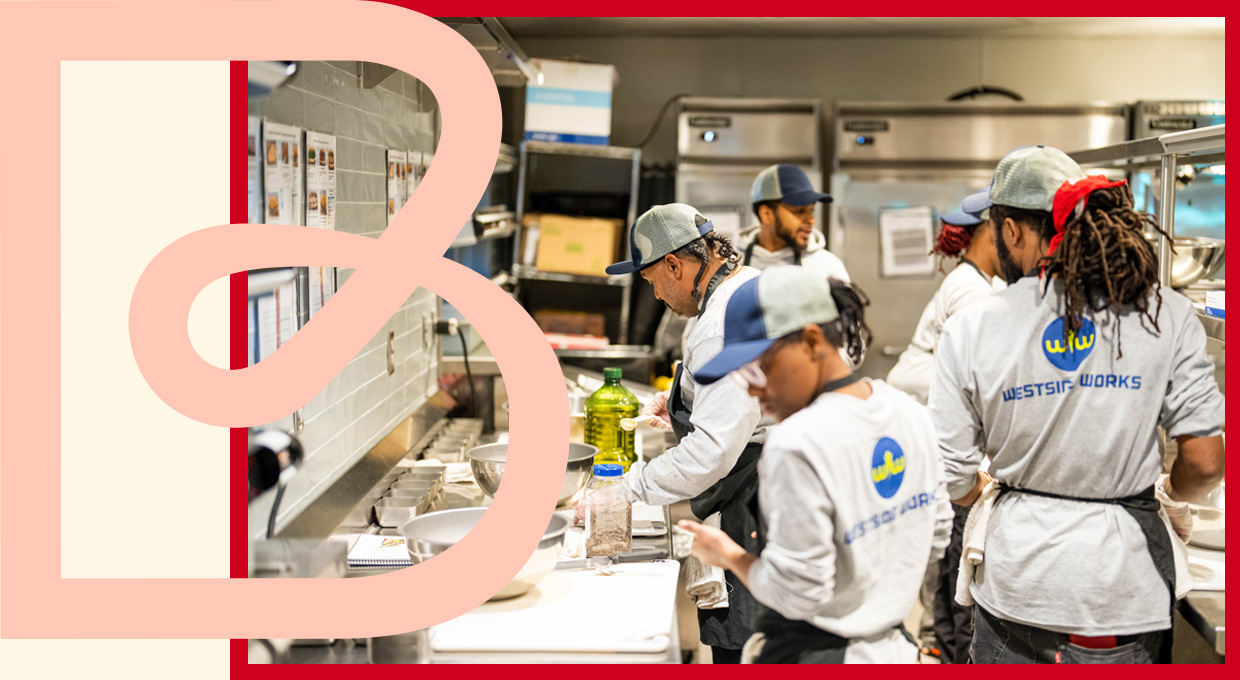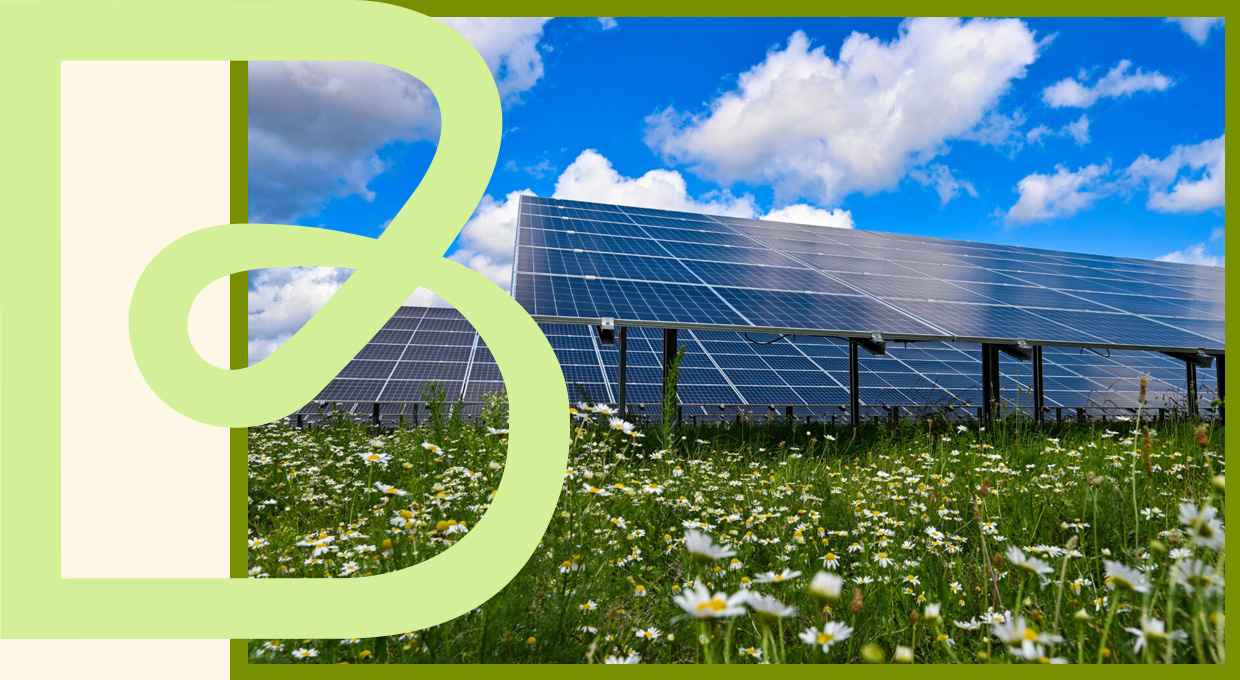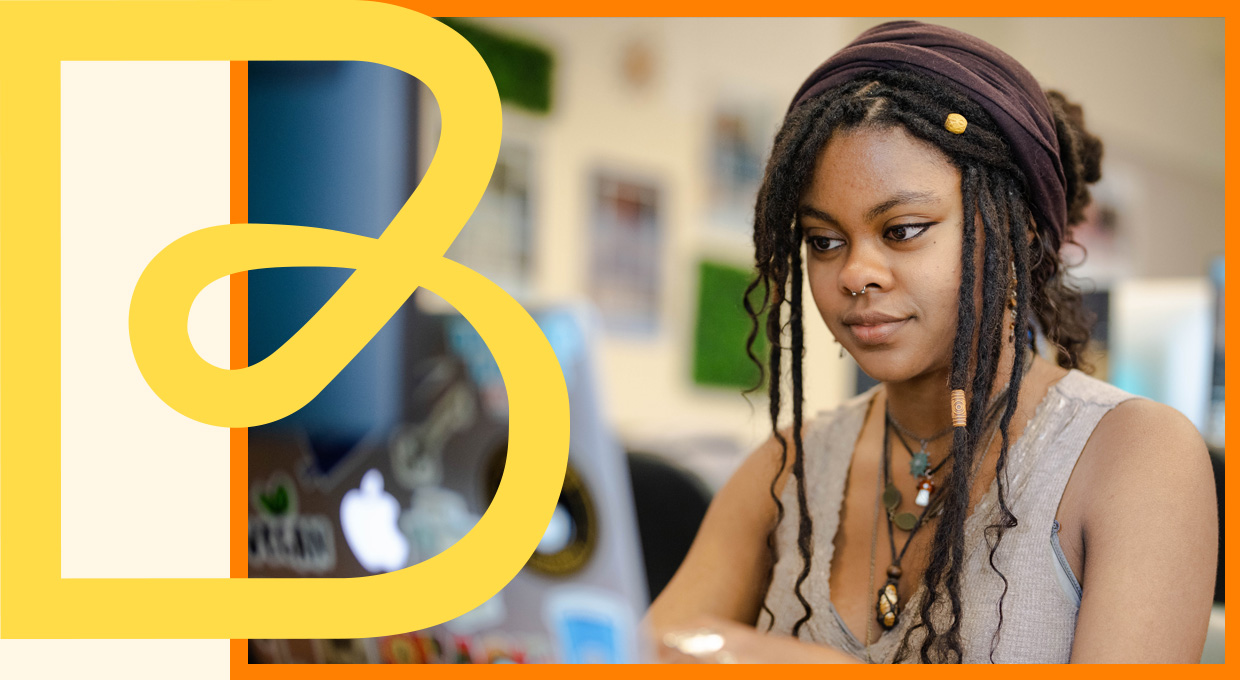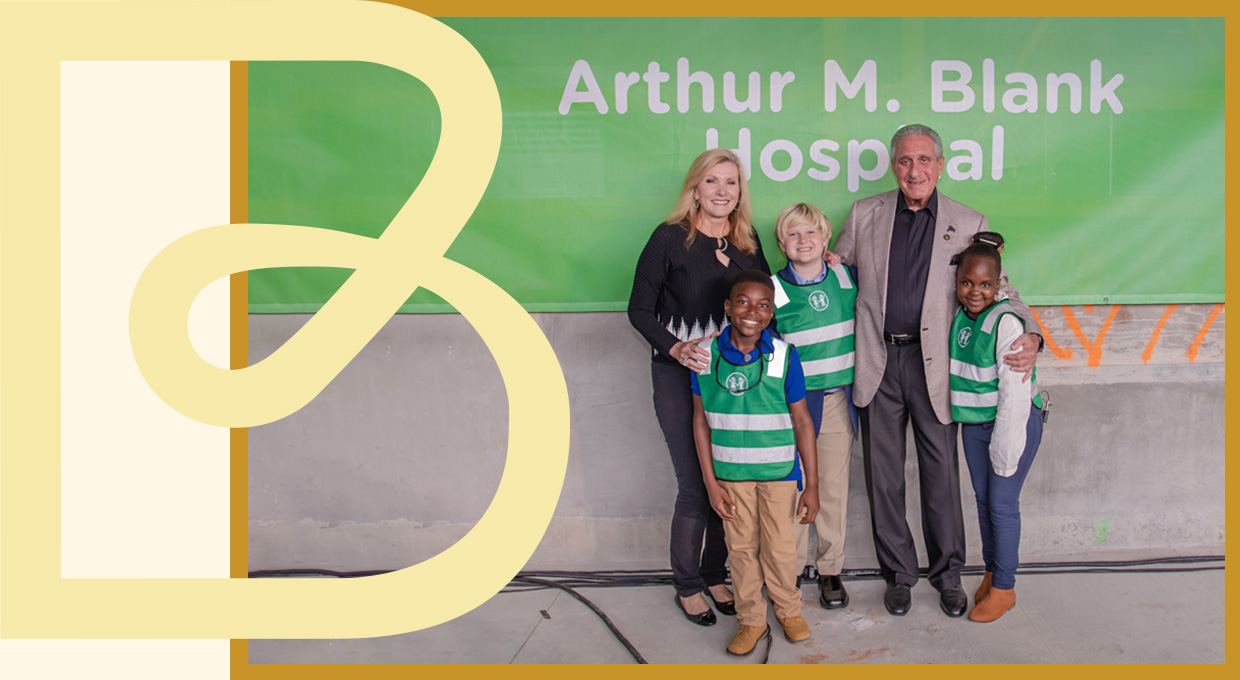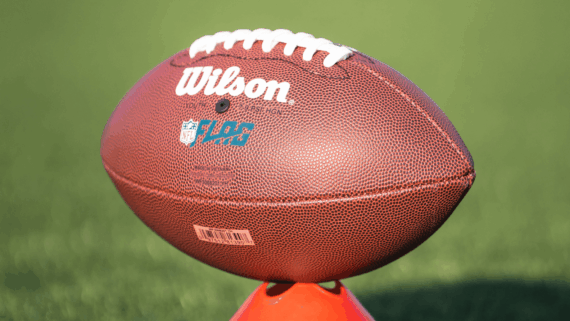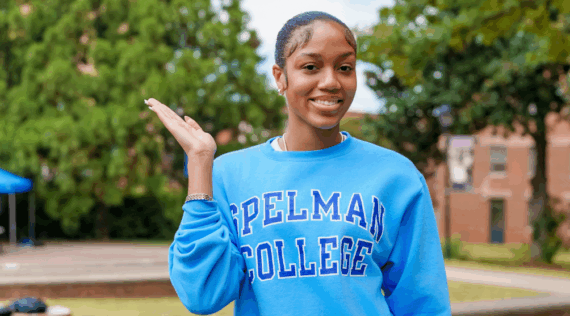A Year in Reflection
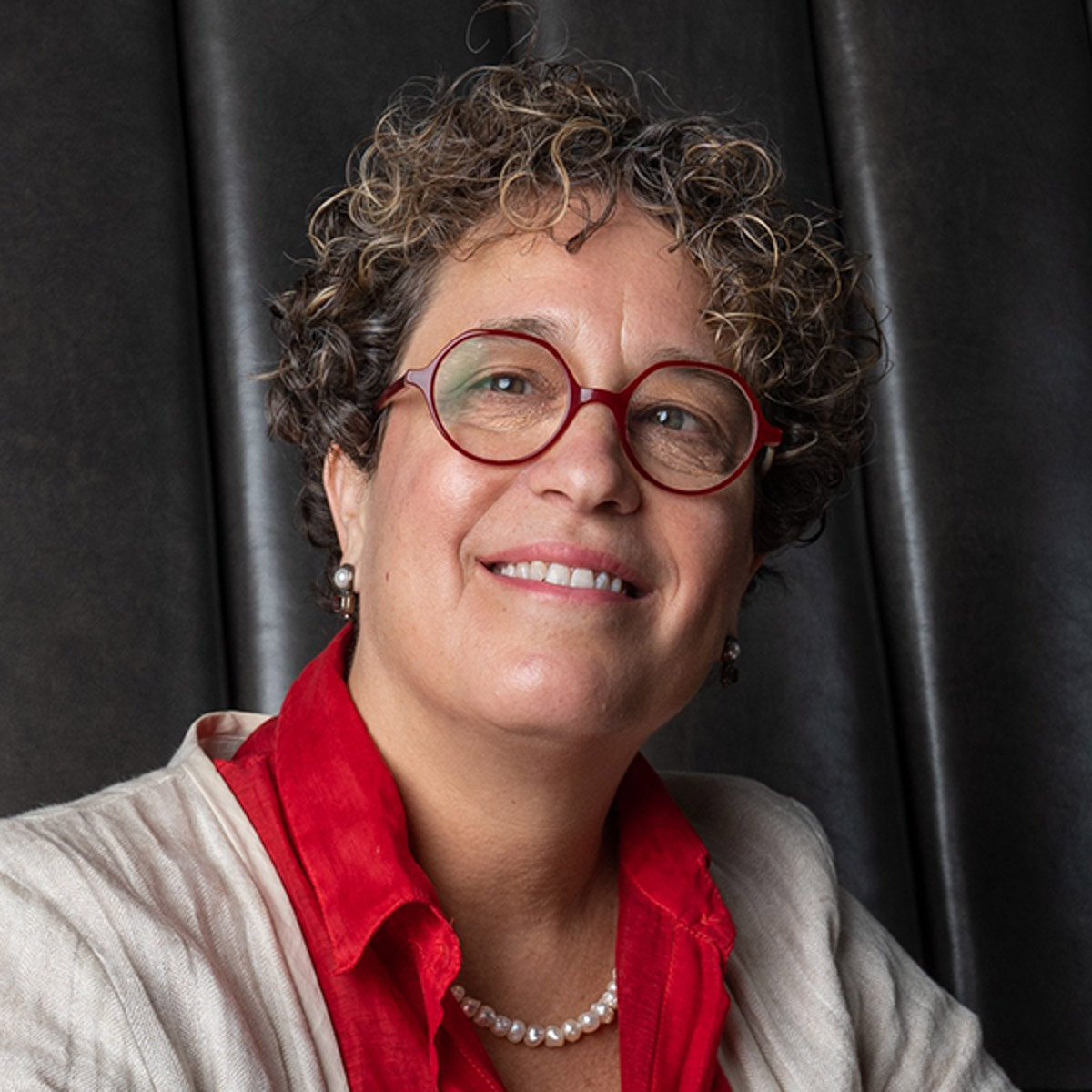
Friends,
I knew this job would be different from any other when I received my offer letter. It was October 2020. My wife, Jill, and I had dinner with Arthur Blank and members of his family – a dinner for which he barbequed in the backyard. At the end of the meal – after a lively conversation about family, philanthropy, New York and more, Arthur left the room and returned with an envelope that he placed in front of me. Scrawled across the front was my name next to a heart with an arrow through it. This was no ordinary job offer. This was no ordinary man and no ordinary family.
Up until this point, I had spent 15 years working in philanthropy, traveling with and among donors and organizational leaders in the field. Arthur is a breed unto himself. I knew that then, and I still know it now. Serving as president of The Arthur M. Blank Family Foundation is as much about love as it is about making positive change in the world. The two are connected. Effective philanthropy is meaningful philanthropy. It is also affective philanthropy — a blend of the head and the heart and the spirit — guided by deep and enduring values. I am beyond fortunate to work with and for a man and a family who share that philosophy.
My journey with the Blank family officially began in February 2021. One year later, I offer some reflections on where we are and the road ahead.
Working in place
We are based in Atlanta, Georgia, and Paradise Valley, Montana, two very different but essential places in our country. We ground our work in these home bases even as we seek to have national influence on the issues we care about most. Bryan Stevenson, the founder and executive director of the Equal Justice Initiative, asks us to get proximate to truly see, hear and understand circumstances facing people and the planet before we go about contributing to meaningfully solving problems. For many years I worked with national and global organizations where it was harder to be proximate when seeking to benefit communities around the world. We had to be very intentional about listening and responding. In the more place-based work we do at The Arthur M. Blank Family Foundation, we still have to be intentional, but listening to our neighbors, the local residents, is built into the very fabric of our purpose.
Here is what I have come to know about Atlanta. The metro Atlanta region is vibrant, diverse and full of interesting entrepreneurial and civic-minded people based in a tree-covered landscape. Atlanta is a gateway to the South with a history I was not sufficiently taught growing up in Philadelphia schools – the true history of the Civil War, the vibrant growth of industry in the South and, of course, the home of the civil rights movement. Atlantans believe Atlanta influences everything, and they have a point. The business community here is bustling and is the most civic-minded and civically engaged I have ever encountered. The food scene rivals the best anywhere, and the sports teams are excellent and on the rise! Tech companies I thought I was leaving behind in Silicon Valley are moving here to grow and diversify their workforces, which I hope turns out to be a net positive for the city, knowing the need to manage the downsides of inflationary costs and wealth inequalities.
Atlanta also has lots of challenges. Inequity already runs deep, often along lines of race and historical disadvantage. As economist Raj Chetty’s research shows, here in Atlanta, a child born to parents in the bottom fifth of the income distribution has less than a 5% chance of ever reaching the top fifth; this is among the lowest odds in the nation. To change those odds, it will take an army of effort. We need to work with others, to act with deliberate urgency across the nonprofit, public and private sectors. Together we should deploy all our assets to lift every voice, providing all with equal opportunity. Atlanta is not just a city we belong to; it is a city we believe in.
By contrast, Montana is a magnificent wide-open state and big sky in the Northwest. One of my most memorable experiences this past year was attending the Fourth of July rodeo in Livingston. Sitting in that rodeo, with Arthur and my son, David Nathan, I had the feeling I had stepped into George Packer’s “Real America.” In Packer’s insightful book, “Last Best Hope: America in Crisis and Renewal,” he describes Four Americas that now comprise and divide our nation. Real America is home to people with deep faith and patriotic convictions who, by and large, have been left out of the high-tech economy. They work hard, and they love freedom and the American way of life. That rodeo was full of patriotic Americans who sang the national anthem with hand over heart and loved everything about bulls and horses – the athleticism and the artistry – and the silly clown antics between acts.
Montana’s diversity is different than Atlanta’s, not just in terms of urban and rural. It is also home to significant numbers of Native American people, some of whom participated in that rodeo. The indigenous people of Montana have been historically marginalized, many of their ancestral lands taken, and they disproportionately live in conditions of poverty.
Montana is part of the American tapestry – it is a state in transition with its own complexity. Young people in Montana die by suicide at twice the rate of young people nationwide. We don’t fully understand why but it is likely due to some combination of isolation, limited opportunity to discover and develop passions and talents, and easy access to firearms. Montana is also the sixth largest coal producer in the United States. Generations have worked in those mines at great personal risk – powering homes across the country. As we make the necessary shift to renewable sources of energy in favor of a healthier planet, we must address the economic and social impact on the people of Montana – we must not leave that America behind. While this was not the America I grew up in, it is an America that calls to me as well. We may be, as George Packer suggests, four Americas, but our future as one nation depends on our finding a way to connect across our differences and defend what was once a bonding national ambition for a more perfect union.
Building on history, participatory ahead of its time
By the time I arrived, the Blank Family Foundation had already given away more than $800 million over 25 years. Much of those funds were dedicated to children and youth as well as supporting community economic development on the Westside of Atlanta. The Westside is the historic home of the civil rights movement, where people like Dr. Martin Luther King Jr. and Julian Bond had their family homes and where the historic Atlanta University Center with schools like Spelman and Morehouse stands as a beacon of hope for a community that has experienced decades of disinvestment and disadvantage. When Arthur Blank built Mercedes-Benz Stadium he made a long-term commitment to supporting the economic development and self-determination of the Westside community. That commitment is enduring. We remain committed to advancing opportunity for young people in both Montana and metro Atlanta even as we get ready to expand our giving in four new areas.
One of the more surprising things I discovered upon arriving here is an inspiring form of participatory grantmaking among the associates who work in the Blank Family of Businesses – the Atlanta Falcons, Atlanta United, PGA TOUR Superstore, ranches in Montana and Mercedes-Benz Stadium. Long before participatory grantmaking hit Main Street philanthropy, the associates across these businesses have been advising and deciding on grants through committees dedicated to issues like youth development, suicide prevention, conservation, veterans’ affairs and other local community needs, including our newest associate-led committee making grants in diversity, equity and inclusion. These committees set priorities, conduct due diligence and guide grantmaking in the communities in which they live and work. They’re one of the best-kept secrets in philanthropy!
The work ahead: new areas of giving and enduring values
The scale of our funding is changing. Arthur is determined to substantially increase his giving over the next 10 years. To that end, Blank family members defined a set of shared priorities, leading us to an exciting moment in the foundation’s evolution. In addition to our enduring commitment to the Westside of Atlanta and to those organizations within our Founder’s Initiatives, we have four new areas of commitment. Some areas build upon previous work, and they all represent the most pressing issues of our time:
- Democracy – attending to issues of voter access, civic participation and journalism.
- Youth Development – enabling and empowering young people to pursue multiple pathways to opportunity – to define and achieve their ambitions for productive and happy futures.
- Environment – to address the existential issue of climate change and the conservation of natural ecosystems necessary for human survival.
- Mental Health & Well-Being — to address the mental health crisis laid bare in this pandemic, especially among youth, and help provide the support that enables lives of meaning and purpose.
We will be looking for ways that these new areas of giving will also be synergistic with our continued funding in Atlanta’s Westside neighborhoods.
“Put people first.” “Listen and Respond.” “Include everyone.” These are three of the Core Values that guide the work of the foundation and the Blank Family of Businesses. Ensuring those values find expression in our everyday work is paramount. First and foremost, that means thinking about the people and communities we are seeking to serve with our funding and putting their voices, interests and perspectives front and center. We are on this journey with our Listen4Good partnership, where we are supporting our nonprofit partners to systematically get feedback from their clients so both they and we can learn and improve. And we will do more.
Our terrific staff team will respectfully partner with grantee organizations in ways that together we can catalyze meaningful and enduring changes for people and the planet. We will partner with our business colleagues to leverage the incredible platform and reach of the businesses. Having Mercedes-Benz Stadium serve as a voting location and later as a COVID vaccination site are just two examples of ways that our Atlanta businesses can have outsize effects on social issues. Opening the ranch properties in Montana to elk hunting for local community members to fill their freezers for the winter was transformative for local citizens AND slowed the growth rate of the elk population on Yellowstone’s border which is challenging ecosystems and ranchers’ livelihoods. As we consider possibilities in other issues like the environment, youth development, democracy, and mental health and well-being, the potential is tremendous.
But, perhaps the most important way we should be working together these days is to advance a new kind of pluralism — healing the crisis of connection in our nation and connecting along lines of difference. There are those who sow discontent and division along political lines, racial or religious lines, class and identity lines, but, as the late Congressman John Lewis said, “Too many of us still believe our differences define us.” Across the foundation’s work going forward, we will be searching for the ties that bind us, so that together we can heal and repair and bring about a more just, kind and healthier world.
I met a new rabbi in Yom Kippur services this year who said that a stranger is just a friend we haven’t yet met. The Blank Family Foundation welcomes strangers. We are eager for new friends. In both Atlanta and Montana, we are on fertile ground for partnership – with nonprofits doing life-changing work and with funders who wish to collaborate. There is much to be done. And no time to lose.
With optimism and gratitude,
Fay
Stay Connected
Stay up to date with stories of impact, grants in your neighborhood and other interesting foundation news.
By submitting this form, you are consenting to receive marketing emails from: Arthur M. Blank Family Foundation. You can revoke your consent to receive emails at any time by using the SafeUnsubscribe® link, found at the bottom of every email. Emails are serviced by Constant Contact

